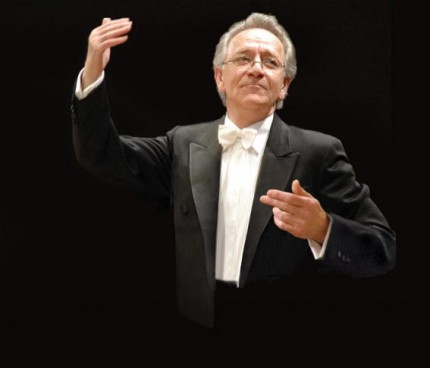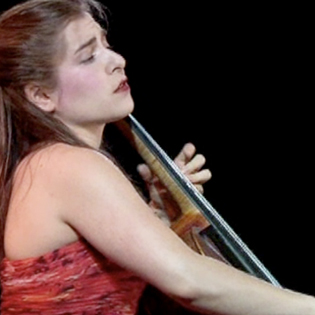St. Petersburg Philharmonic shows brawny strength and refinement

Yuri Temirkanov led the St. Petersburg Philharmonic Orchestra Wednesday night at Orchestra Hall.
Few Russian orchestras can boast the kind of storied history and tradition of the St. Petersburg Philharmonic. Founded in 1882 as the court orchestra to Czar Alexander III, the ensemble premiered Tchaikovsky’s Pathetique symphony under the composer’s baton, and debuted Prokofiev’s Classical Symphony as well as many of Shostakovich’s symphonies under his dedicated advocate Evgeny Mravinsky.
The St. Petersburg Philharmonic came to Chicago Wednesday night as part of its current 19-city U.S tour under music director Yuri Temirkanov.
If the greater luster and tonal sheen of the Russian National Orchestra has usurped the St. Petersburg Philharmonic’s long-held place as Russia’s top symphonic ensemble, the Philharmonic can certainly still hold its own. On Wednesday night, the group gave a fine account of itself displaying the classic attributes associated with Russian orchestras: a forceful, brawny sonority, imposing, febrile brass and turn-on-a-dime strings. Woodwinds proved more variable with fitfully wiry oboes, serviceable flutes and decidedly bland clarinets.
The once-popular Russian Easter Overture has fallen out of favor on American programs—not entirely without reason since this flashy early showpiece by Rimsky-Korsakov has its vulgar moments amid the heady, incense-laden mix of sacred and profane Russia Orthodoxy.
Temirkanov brought out an uncommon refinement in this music that neatly balanced the fireworks with notable individual contributions including an eloquent solo by first trombone Maxim Ignatyev and the sweet-toned violin of concertmaster Lev Klychkov. Yet the orchestra opened up with all due fire and corporate brilliance in the boisterous final section with some dazzling violin playing by the entire section at a very fleet tempo.

Alisa Weilerstein
Alisa Weilerstein made an impressive downtown CSO debut two years ago at the orchestra’s Dvorak Festival. The American cellist is clearly a gifted and sensitive musician but I found her account of Shostakovich’s Cello Concerto No. 1 something of a mixed bag.
Weilerstein brought delicacy and a tender, searching quality to the inward sections of this gaunt and brooding music, notably so in the ruminative Moderato and the opening pages of the long cadenza. The cellist rightly sees that extended third-movement solo as the heart of the concerto, and Weilerstein took it at a very spacious pace. And while her playing was striking for the degree of dynamic nuance and confiding expression, at times the soloist’s measured approach flirted with stasis.
Also in the outer sections, Weilerstein brought all due intensity but didn’t always seem like she had her fingers completely around the music. There was a fractional hesitation before some big chords in the opening Allegretto and intonation was not always clean in the heat of the moment. More problematic, in the straight-ahead bravura of the galumphing finale some of the most virtuosic sections were underprojected and emerged rather garbled Wednesday night.
Overall Weilerstein’s performance had inspired moments but seems like something of a work in progress. No complaints about the richly textured accompaniment of Temirkanov and the orchestra with especially fine contrbutions from first horn Igor Karzov.
It’s good to have a Russian orchestra perform a symphony on tour that isn’t by Tchaikovsky or Shostakovich. Still, one wishes they had chosen something more daring than Dvorak’s New World symphony.
That said, Temirkanov led a strongly projected performance that proved somewhat middle-of the road interpretively. The center of gravity was clearly north and east of Prague wih a notably fleet Scherzo and a hard-driven finale, thundering timpani to the fore. The Czech composer’s rustic charm was less in evidence but there were several worthy moments along the way, not least Mikhail Dymsky’s mellifluous Engish horn solo in the Largo.
The extended ovations by a largely packed hall brought Temirkanov back out for a light and lilting encore of Elgar’s Salut d’amor.